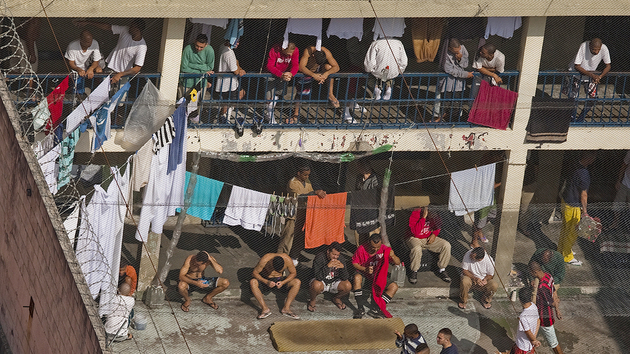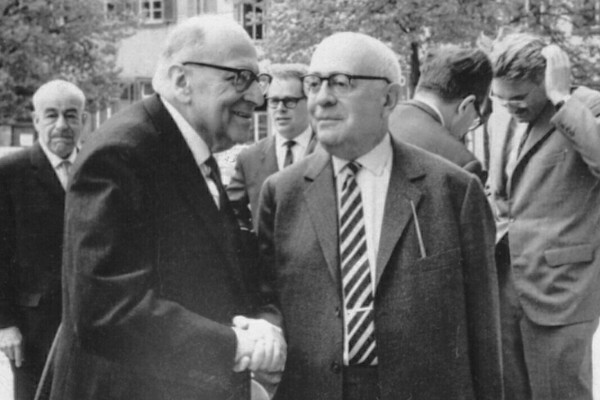O Brazilian prison system it consists of federal and state prisons, both male and female.
For a variety of historical and political reasons, Brazilian prisons are overcrowded, fail to turn their inmates into useful citizens, and are undergoing a serious structural crisis.
Prison System in Brazil

Brazil is the third country in the world with the largest number of prisoners. In December 2014, the prison population in Brazil was 622,202. Two years later, in June 2016, there were 726,712 prisoners.
Specialists estimate that it would be necessary to build a prison every day of the year to reduce the deficit of places, which amounts to around 250,000.
Each inmate costs the State around 1500 reais. As there is not enough money for so many people, it is the prisoners' families who bear the cost of food and clothing for the inmates.
With the overcrowding of prisons, criminal factions took over the organization of prisons and now dispute Brazilian prisons.
Prison Culture in Brazil
Brazil views confinement as the only solution to crime problems.
Civil society does not care whether the criminal will be treated with dignity there. Instead. Many applaud the rebellions taking place in some Brazilian penitentiary centers, because they think that this way, there will be fewer bandits in the streets.
In an interview carried out in 2017, the Minister of the Supreme Court, Alexandre de Moraes, commented on the differences in penalties for such disparate crimes:
"We arrest quantitatively, from the theft of a cylinder that someone jumps over the wall, without violence or serious threat, to a robbery of a vault, with a rifle, a qualified robbery. One stays 10 months and the other stays 5. Totally different behaviors, but violent banditry, high crime, spend very little time in jail."
This idea is also shared by Professor and Attorney of Justice of Minas Gerais, Dr. Rogério Greco. In January 2017, he claimed that prisons reflected social inequality in the country:
Brazil holds a lot and holds it badly. Those who had to be free are free and those who had to be free are free. We only imprison the poor, only miserable. This is our culture, our rule. It's much easier to arrest a miser than it is to arrest a middle- or upper-middle-class guy. (Interview with the program “Palavra do Professor”).
In most Brazilian prisons, the State does not provide the minimum material comfort or basic hygiene items.
In this way, the prisoner depends on the help of his/her family members (if any) or on the help of other prisoners. However, this does not come for free and will certainly be charged with sexual favors, participation in petty crimes or factional enticement.
Prisons should aim to recover and re-socialize the imprisoned individual. However, in Brazil, the percentage of prisoners who study is only 11% and only 25% carry out some type of internal or external work.
Solutions for the Brazilian Prison System

Differentiated Sentences
An alternative to reduce overcrowding would be to invest in differentiated penalties in semi-open regime or agricultural colonies.
However, many judges are against this measure because they claim that there is not enough inspection to follow the correct execution of these sentences.
Agility in Justice
Another problem that contributes to the overcrowding of prisons is that 40% of prisoners in Brazil are provisional. In other words: they are people who have not even had a hearing with the judge and are awaiting the sentence. The delay occurs as hearings can only take place in the presence of a public defender.
According to data from Anadep (National Association of Public Defenders), there are no public defenders in 72% of the country's districts. Thus, the problem is aggravated by the lack of employees.
Change in Anti-Drug Legislation
The increase in the number of arrests carried out in the first decades of the 21st century in Brazil is due to several factors such as population growth itself.
On the other hand, according to studies, the growth of the Brazilian prison population was due to changes in legislation with the 2006 Drug Law (No. 11.343). The number of people arrested for drug trafficking increased by 348% since the publication of this law.
This happened because the law does not clearly determine the amount of drug that a person can take with him to characterize him as a user or a dealer.
Likewise, there are cases where the only witnesses for the prosecution are the police officers who committed the act. The Court of Justice of Rio issued summary 70, in 2004, which authorizes judges to convict those accused of drug trafficking, having as the only evidence the word of the policeman who carried out the flagrante delicto.
A survey conducted by USP in 2012 revealed that 74% of arrests for drug trafficking in São Paulo had only military police officers as the only witnesses in the process.
Prison System Numbers in Brazil
These would be the main numbers of the prison system in Brazil, according to data from the Ministry of Justice collected in 2017.
| number of prisoners | 726 thousand |
|---|---|
| Number of vacancies | 368 thousand |
| Prisoners awaiting trial | 217 thousand |
| State with the highest number of prisoners | São Paulo with 240,061 |
| State with the lowest number of prisoners | Roraima with 2,339 |
| State with the most overcrowding | Amazons with 5 prisoners per seat |
| age group | 56% are 18 to 29 years old |
Read more about some related topics:
- Criminal majority
- Death penalty
- Violence in Brazil
- Social Problems in Brazil
- Democracy in Brazil
- Urban violence

